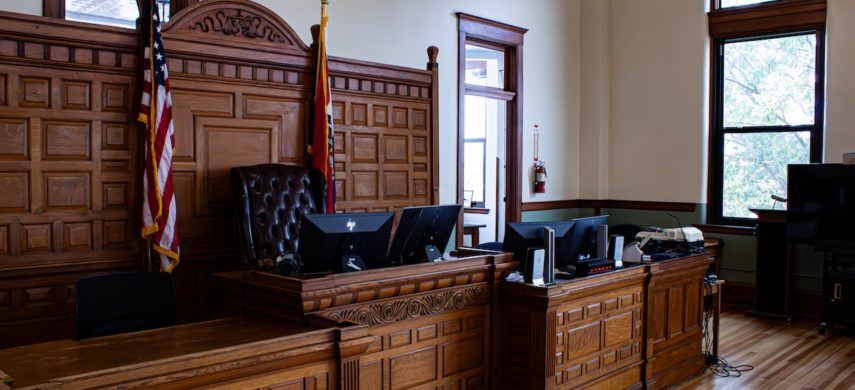
A deed is the legal foundation of real estate ownership in Florida. It officially transfers property rights from one party to another, and if something goes wrong with that process, the entire transaction can unravel. An invalid deed can result in lawsuits, delays during sales, title insurance denials, and even loss of property rights. But before we get into that, let’s cover what makes a deed valid.
Basic Legal Requirements for a Valid Deed in Florida
Florida law has clear rules that determine whether a deed is legally valid. These aren’t just technicalities; missing even one can void the entire document. Here’s what a deed must include to hold up under Florida law:
- Written Format: Verbal property transfers are not valid. A deed must be in writing.
- Grantor Signature: The person transferring the property (grantor) must sign the deed.
- Two Witnesses: Florida requires two witnesses to observe and sign the deed.
- Notarization: A notary public must acknowledge the grantor’s signature.
- Legal Description: The property must be clearly and accurately described using its legal description, not just the street address.
- Delivery and Acceptance: The deed must be delivered to and accepted by the grantee (recipient).
These requirements are outlined in Fla. Stat. § 689.01 and § 695.26.
Problems with Execution: Missing, Improper, or Defective Elements
Some deed errors are so small they go unnoticed until they cause serious problems. But Florida law isn’t lenient when it comes to proper execution. Forgetting a second witness? That deed may be worthless. Using a vague or incomplete legal description? Same risk. These errors often come up with DIY documents or templates pulled from generic websites.
Other common issues include:
- Incorrect names, especially if the grantor’s or grantee’s legal name isn’t used consistently
- Notary acknowledgment sections left blank or filled in after the fact
- Confusing or mismatched property descriptions
These flaws can derail closings, prompt title insurance rejections, or worse, spark litigation between parties who thought the deal was done.
Delivery and Intent: The Overlooked Requirement
Here’s a scenario that trips up more people than you’d think: a deed is properly signed, witnessed, and notarized, then forgotten in a drawer. Years later, someone finds it and assumes ownership has changed hands. It hasn’t.
In Florida, a deed is not valid unless it’s been both delivered to the grantee and accepted by them, with clear intent from the grantor to transfer ownership at that moment. It’s not enough to plan on giving it “someday.” The delivery must be backed by intent that’s obvious through actions or supporting documents.
This requirement has invalidated deeds that were:
- Left behind in safes or filing cabinets with no communication to the recipient
- Handed off to a third party with unclear instructions
- Given as part of an estate plan but not delivered before death
Intent and delivery can be proven in court, but without a strong paper trail or witness testimony, it’s an uphill battle.
Mental Capacity, Undue Influence, and Forgery
Now we’re into the human side of invalid deeds-where manipulation, memory loss, or flat-out fraud come into play. These issues show up most often in inheritance fights or when properties change hands in non-commercial settings.
Here’s how each scenario can unravel a deed:
Mental Capacity: If the grantor was suffering from Alzheimer’s, heavily medicated, or otherwise impaired at the time of signing, the deed may be void. The key is whether they understood what they were doing and the consequences.
Undue Influence: A family member or caretaker pressures an elderly person to transfer property. Courts look at dependency, isolation, and whether the influencer arranged everything. This includes finding the attorney or notary.
Forgery: Signatures that don’t match, notary stamps used without permission, or deeds altered after signing. These can lead to criminal charges and the total reversal of ownership.
Chain of Title Issues and Wild Deeds
Sometimes a deed looks valid on its own, but causes trouble once you zoom out and look at the property’s full ownership history. That history is called the “chain of title,” and if even one link in the chain is faulty, the whole thing can collapse.
One of the biggest culprits is a wild deed. This is a deed that isn’t connected properly in the public records. For example, someone might try to transfer a property they never legally received, or a deed gets recorded out of order and doesn’t match prior ownership. When that happens, the current owner’s claim might not be recognized in a title search.
In Florida, these issues often come up during real estate closings or when applying for title insurance. If you’re trying to sell a property with a broken chain of title, expect delays or a possible lawsuit to fix the problem.
Corrective Deeds and Mistakes That Make Things Worse
Corrective deeds are supposed to fix small problems, like a typo or a missing middle initial. But if not used correctly, they can create bigger problems than they solve. Some people try to replace the original deed entirely or change major details without legal guidance. That’s when things go sideways.
| Correct Use | Incorrect Use |
|---|---|
| Fixing a misspelled name | Changing who owns the property |
| Adding a missing legal description | Altering the date to backdate the deed |
The safest approach is to file a corrective deed that clearly states the intent is only to fix an error, not to alter the original transaction. And always have an attorney review it before recording anything new.
Common Misconceptions: Unrecorded Does Not Mean Invalid
Many people believe that a deed must be recorded with the county to be valid. That’s not entirely true. In Florida, a deed becomes valid when it is properly executed and delivered, regardless of whether it’s been recorded. But that doesn’t mean skipping recording is harmless.
The risk is in priority disputes. Florida operates under a notice recording system. If someone else buys the same property and records their deed first (and they didn’t know about the earlier unrecorded deed), their claim could take priority.
Consequences of an Invalid Deed
When a deed is declared invalid, the legal effect is simple: it’s as if the transfer never happened. That can lead to major fallout for all parties involved.
Here’s what might happen:
- Ownership disputes: Competing claims to the same property often end up in court.
- Quiet title actions: A legal process used to establish rightful ownership and clear up public records.
- Failed sales: A property can’t be sold if the seller doesn’t have clear title. Invalid deeds are a common deal-breaker.
- Title insurance claims: Buyers may file claims if they purchased property unknowingly tied to an invalid deed.
- Probate complications: Heirs might be forced to litigate or re-file documents if a prior deed wasn’t properly executed or delivered.
The key takeaway: deed mistakes don’t just affect paperwork. They can upend property rights, delay sales, and force costly legal fixes that could have been avoided with proper review upfront.
How to Protect Yourself from Deed Problems
Whether you’re signing, receiving, or reviewing a deed in Florida, a few proactive steps can help you avoid all of the issues we’ve covered above. These aren’t just best practices, in many cases, they’re the only thing standing between you and a multi-month legal headache.
Here’s what to do:
- Always use a Florida-licensed real estate attorney for deed drafting or review.
- Double-check that all parties are correctly identified, and that the legal description matches county records.
- Make sure the deed is signed with two witnesses and properly notarized.
- Deliver the deed promptly to the grantee and confirm it’s accepted.
- Record the deed as soon as possible with the county clerk to protect your interest.
Inheriting a property? Buying from a relative? Trying to correct a mistake from years ago? It’s even more important to take these precautions. Deed problems tend to hide until you try to sell or refinance, but by then they’re much harder to fix.







